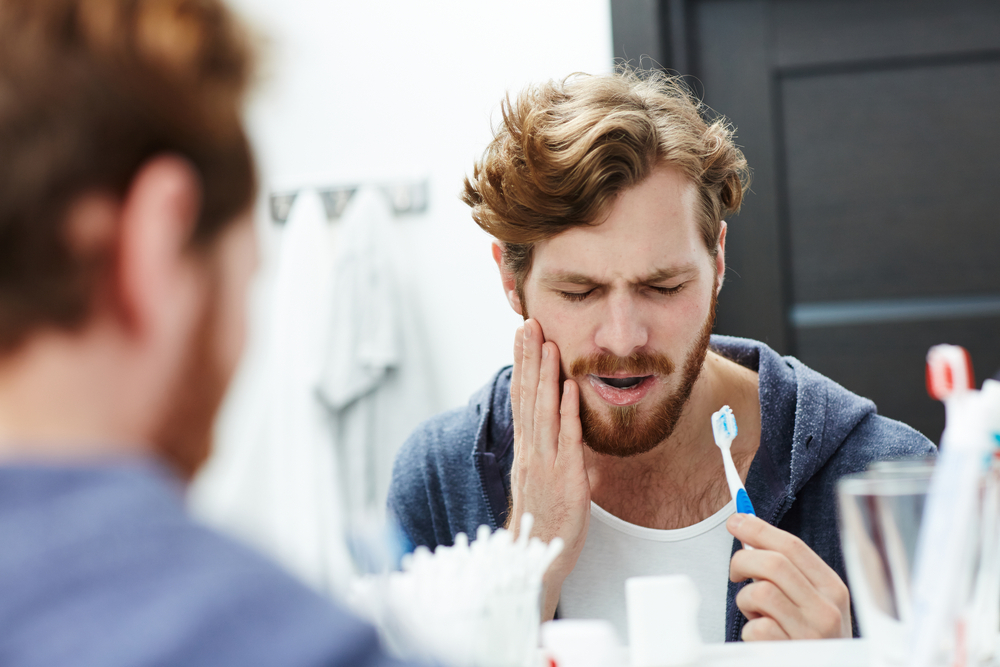Opening Hours
Mon-Fri: 9:00 AM - 5:00 PM
Sat: 9:00 AM - 5:00 PM
Call Us
(02) 7228 7272
Dentist Marrickville | True Smiles Dental

Quick! If you’re clicking onto here because someone just knocked out a tooth, find it immediately, hold it by the crown (don’t touch the roots) and rinse it with water before placing the tooth back into its original position (even if it’s bleeding). Have their mouth closed with a clean cloth, napkin, or gauze to keep the tooth in place, and remain calm. The best chance of saving a tooth is within the first 20 minutes. If you can’t put the tooth back into its original position, submerge the tooth into a liquid – preferably the person’s saliva, but water, milk, coconut water or saline is fine. DO NOT leave the tooth in the mouth, it might get swallowed, and if it’s a baby tooth – do not put it back in! See a dentist as soon as you can.
Okay, now that we have the emergency sorted – take a deep breath. Hello! Welcome to another blog from True Smiles Dental where this time, we’ll be discussing how to handle a dental emergency, what to expect after, and how to look after your tooth. Pain comes in many different forms, but the best way to save your tooth starts with seeing a dentist early. If you start having pain persistently – don’t brush it away, have it checked first. Try to remember when the pain started, what type of pain it is, and if it’s prompted by something – the more information you can tell us, the more accurate our diagnosis will be.
To check if something you or someone else is experiencing is abnormal, here are a few signs to lookout for:
To help us diagnose what sort of pain you might be having and what we can do to help, we recommend not taking any pain relief before the appointment. Some of the tests we run to investigate the root of your pain may require you to let us know which tooth is in pain, if you aren’t able to feel much it makes our diagnosis a little more difficult. If your appointment isn’t until a few days, take some pain relief, but just not in the hours leading up to the appointment. We’ll be asking you a few questions too, so please let us know if you have any concerning medical conditions and what medications you’re currently taking.
When figuring out what the pain may be, here’s what we might do:
Based on the information we collect; we’ll be able to provide a prognosis and plan for how to (hopefully) fix your teeth.
If your dentist has prescribed you any medication, don’t save it for next time and finish the course of antibiotics. If the bacteria aren’t entirely eradicated from your body, it may come back stronger and will require a stronger course of antibiotics to be properly treated. Occasionally after having your tooth treated, possibly with a filling, pain and sensitivity may still be present for a few days – that’s normal. If the pain is still present after two weeks, see your dentist again for a review. If your tooth has been dislodged or moved from its original position, it’s vital to attend recall appointments to allow us to monitor the tooth and make sure we can catch any early interventions or referrals early.
At True Smiles Dental, we try our best to keep you happy and to keep your smile bright and healthy. We believe that the chances of having to visit the dentist in pain can be reduced with preventative treatment, such as fissure sealants in young children, and mouthguards to wear while playing sport. If you’re ever in pain, please your local dentist or dental hospital as soon as possible – the earlier we see you, the more help we can give you. Please contact us on (02) 7228 7272, if you have any questions or concerns, or book online at https://truesmilesdental.com.au/appointments.
Thank you for tuning in today! We’ll see you next time for another blog.